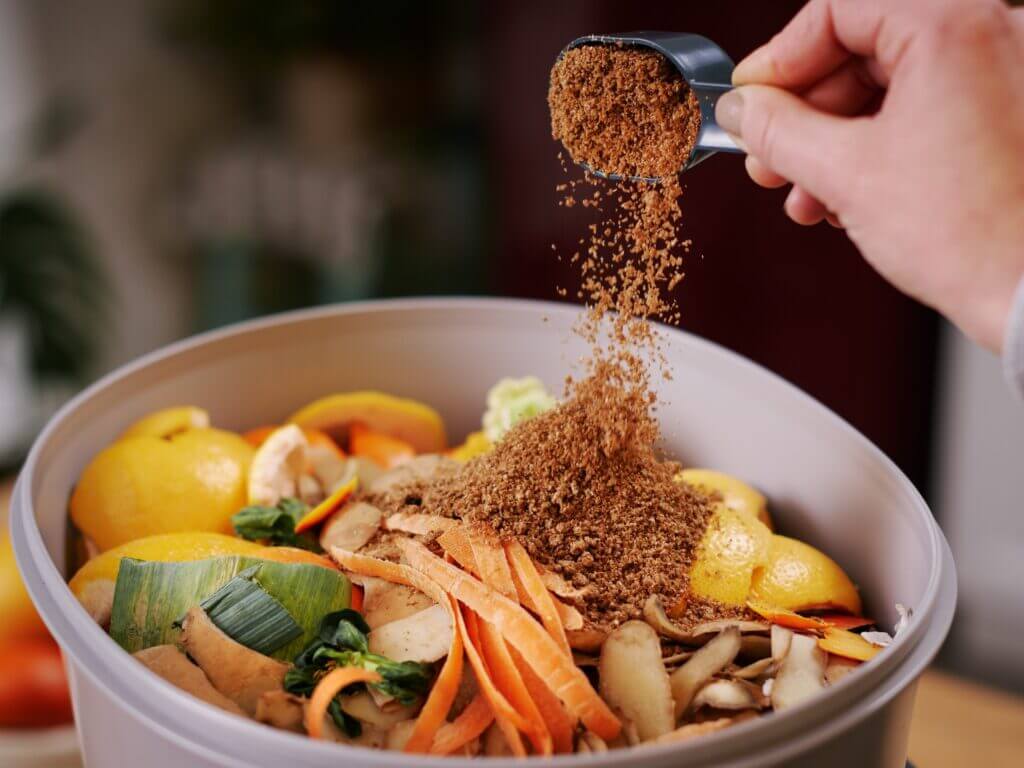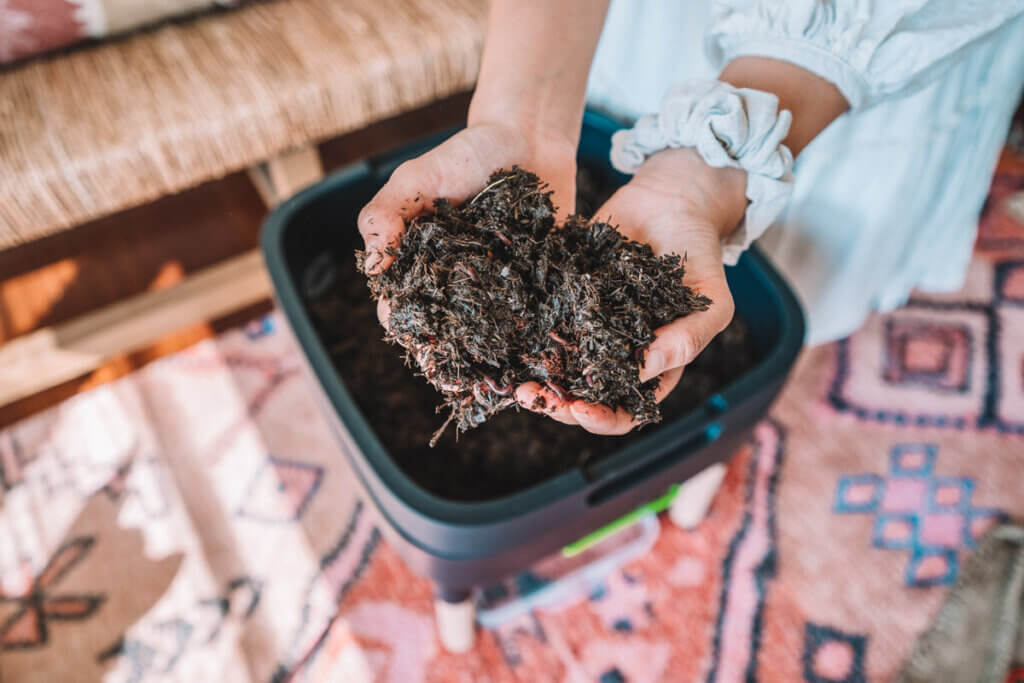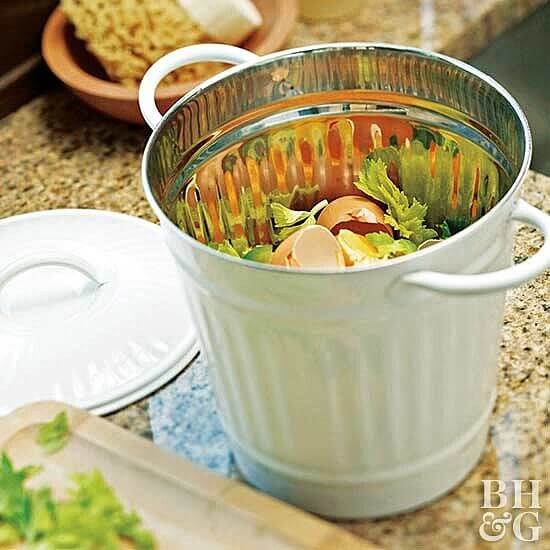You’re interested in zero waste living and sustainability but live in an apartment? Does composting seem impossible to you as it’s something only farmers can do? You cannot be more wrong. Living in an apartment doesn’t mean you have to miss out on the joys of composting and contributing to a more sustainable planet. Yes, it’s true that composting food waste in a confined space may seem challenging, but with a bit of research and commitment, you can turn your kitchen scraps into nutrient-rich compost for your indoor plants or community gardens. In this guide, we’ll explore practical steps and tips for composting food waste in an apartment setting.
1. Understand the Basics of Composting
Before diving into this new adventure, it’s essential to grasp the basics of composting. Composting is a natural process where organic materials decompose to create nutrient-rich soil conditioner. The key elements for successful composting are green materials (nitrogen-rich) such as fruit and vegetable scraps, and brown materials (carbon-rich) like dried leaves or shredded newspaper. You also need to remember that it’s a time consuming process. Your food scraps need a good couple months to fully decompose and turn into soil.
2. Select a Right Composting System
I know that in apartment living, space is a precious commodity. Fortunately, there are more than one ways to compost in small spaces. Consider options like vermicomposting (a worm bin), bokashi composting, or electric composters. Worm bins are the most popular for apartment dwellers as they are compact, efficient, and don’t produce offensive odors when managed properly. On the other hand not everyone wants to have worms in their apartment. Do your research and find a system that works best with your lifestyle and prioryties.

3. Set Up Your Composting System
Once you’ve chosen your composting system, it’s time to set it up. If you opt for a worm bin, layer shredded newspaper or cardboard at the bottom, add some soil, and introduce red wiggler worms. For bokashi composting, use airtight bins with a drainage system. Electric composters are the most convenient and only require an electrical outlet.
4. Collect and Store Food Scraps
Collecting food waste in an apartment requires a bit of organization. The easiest way is to designate a small container in your kitchen for daily food scraps. This could be a sealed container, preferably with a carbon filter to control odors. Remember to balance your green and brown materials by adding shredded newspaper or dried leaves to the mix.
5. What to Compost
Before you start composting, it’s essential to know what is safe to compost and what to avoid. Suitable items for composting include fruit and vegetable peels, coffee grounds, eggshells, and small amounts of bread or grains. Avoid composting meat, dairy, and oily items, as these can lead to unpleasant odors and attract pests.
6. Maintain the Right Moisture and Aeration
Composting requires the right balance of moisture and aeration. Keep your composting system damp but not waterlogged. If using a worm bin, monitor the moisture level to ensure the bedding remains moist. Turning the compost regularly aerates it and accelerates the decomposition process.
7. Troubleshoot Common Issues
In apartment composting, challenges may arise, but most are easily overcome. Foul odors may indicate an imbalance in your compost bin; add more brown materials to rectify this. If pests become an issue, adjust the composting mix, and consider adding diatomaceous earth or coffee grounds to deter them.

8. Harvest and Use Your Compost
After a few weeks to a few months, depending on your composting method, your compost will be ready for harvest. Worm castings, bokashi pre-compost, or finished compost from electric composters can be used to enrich your indoor plants or donated to local community gardens.
9. Educate Your Apartment Community
Encourage your neighbors to join in the composting effort. Organize workshops or share tips on community bulletin boards. The more people involved, the greater the impact on reducing overall food waste.
Composting food waste in an apartment requires commitment, but the rewards are well worth it. By following these steps and embracing the principles of composting, you can turn your kitchen scraps into a valuable resource for your indoor plants or community gardens. As urban dwellers, you may have limited space, but with a bit of creativity, you can all contribute to a more sustainable and environmentally friendly lifestyle.
